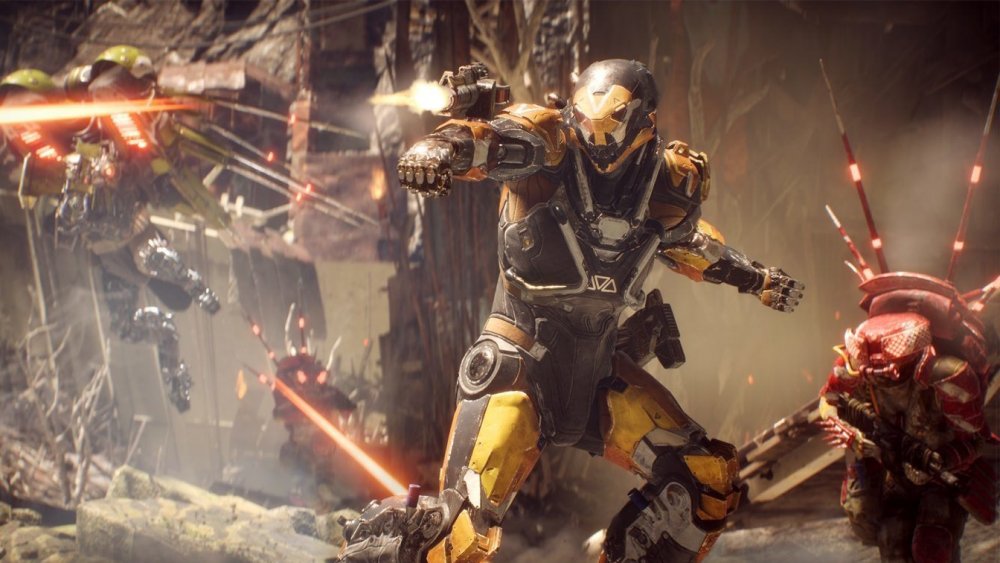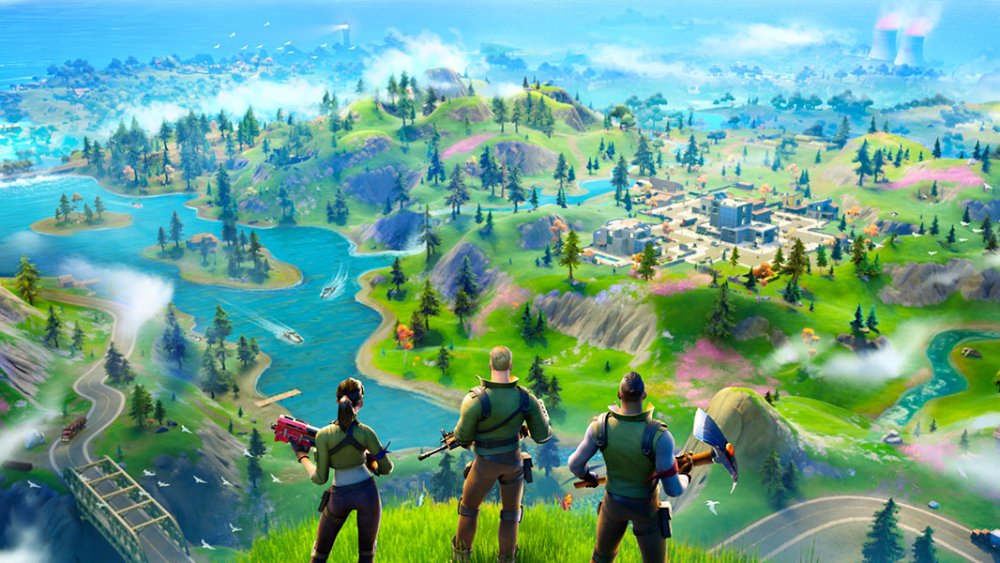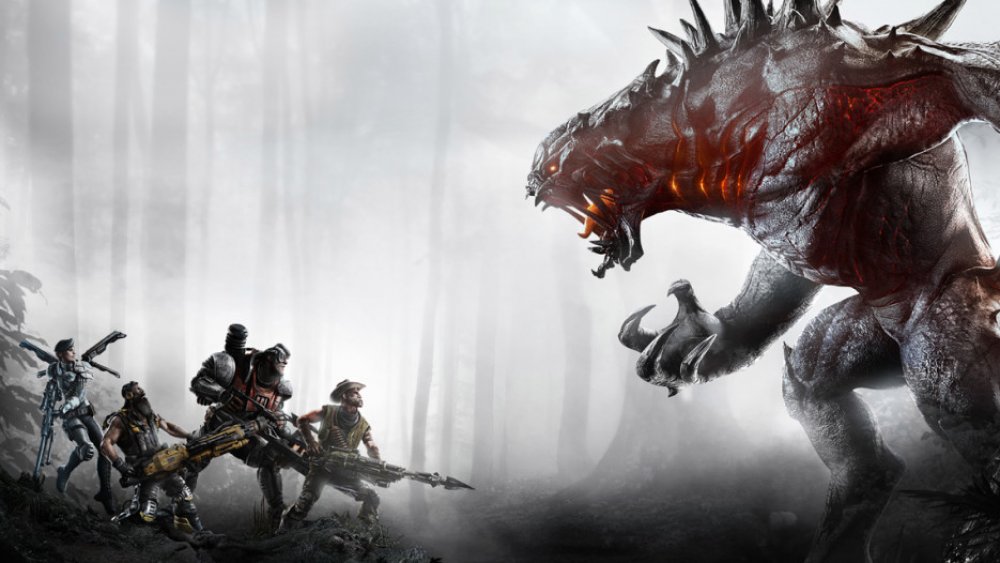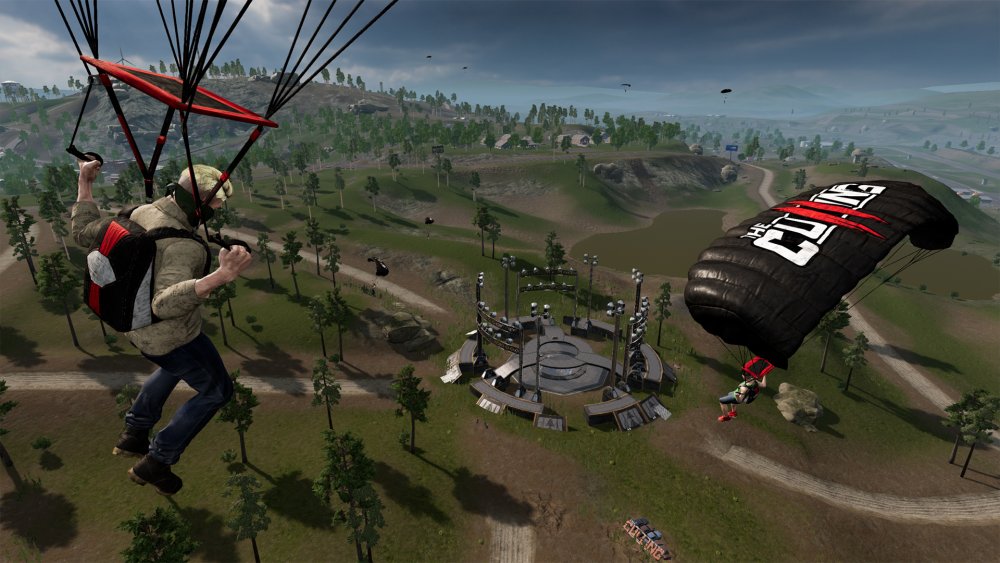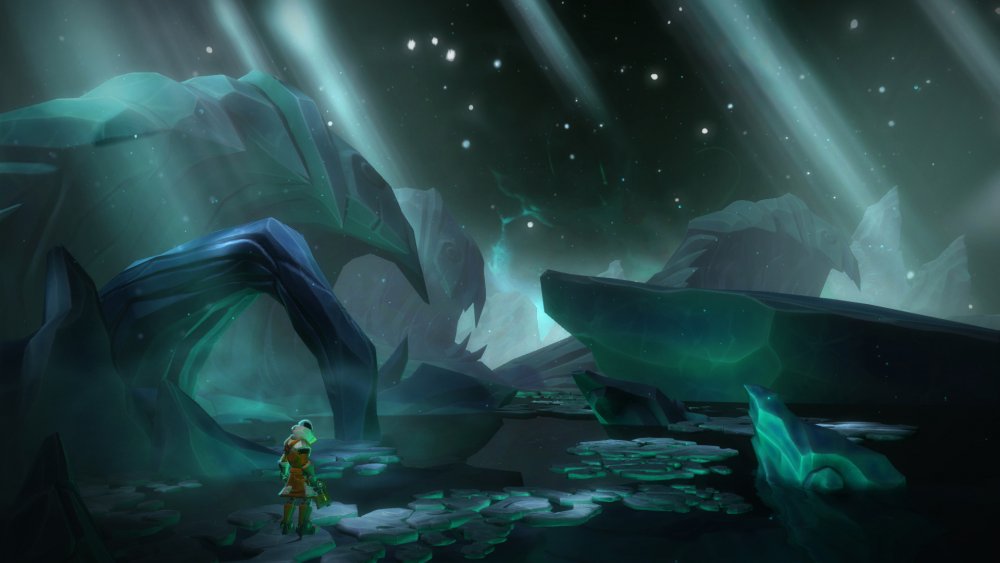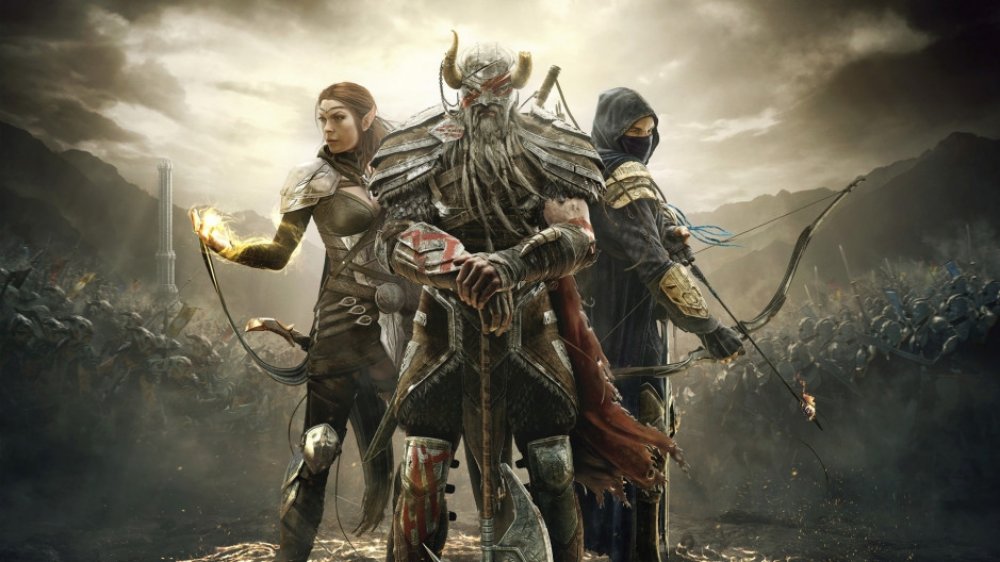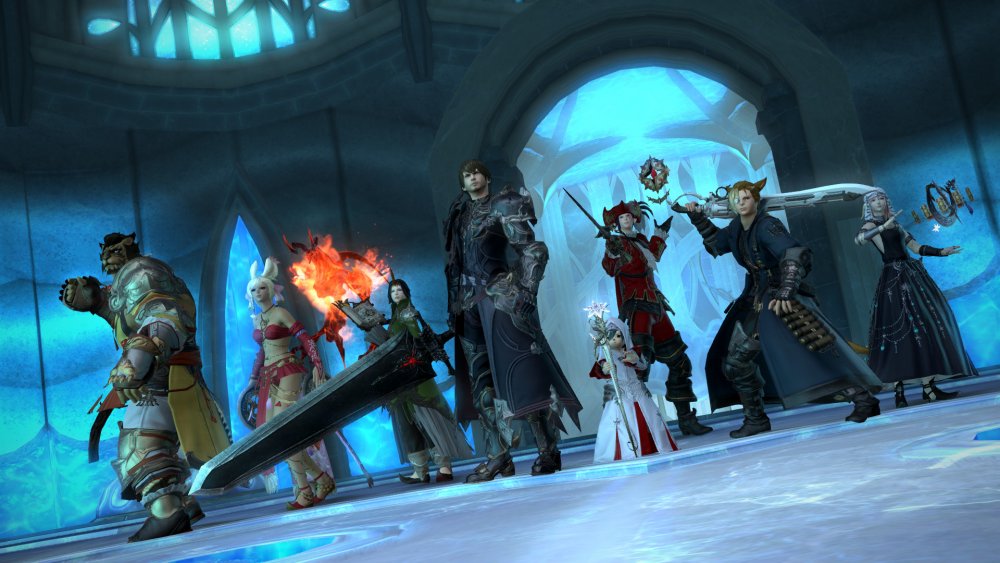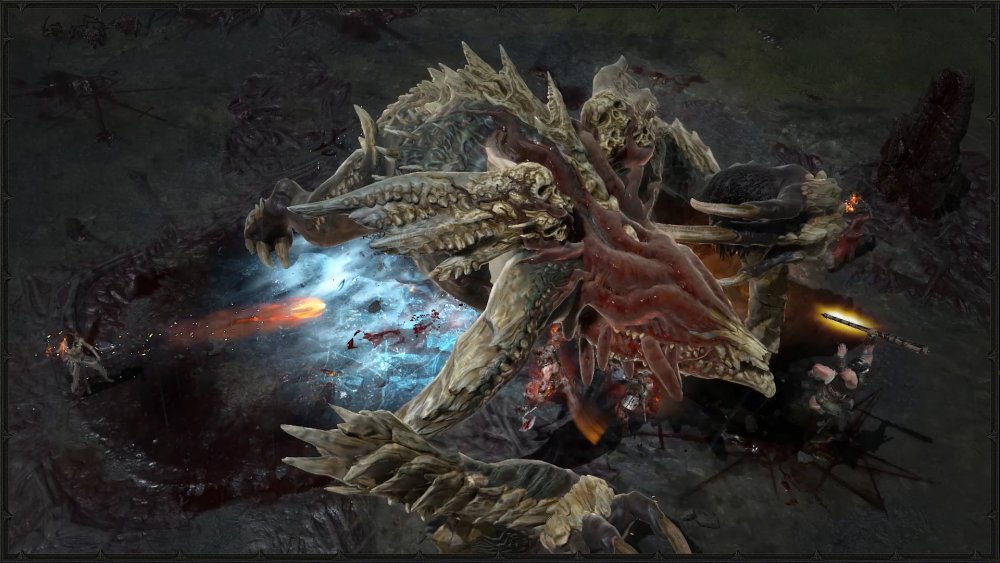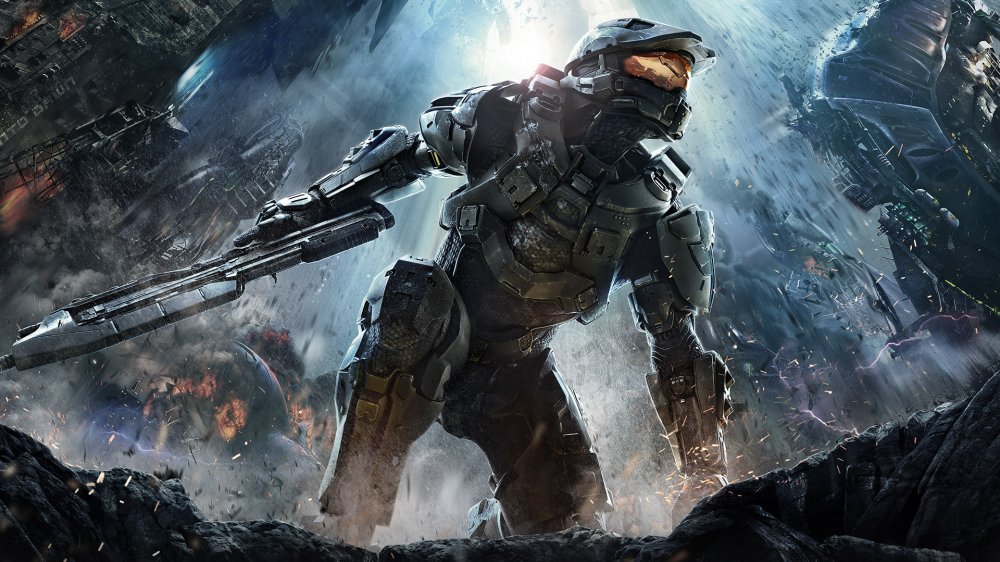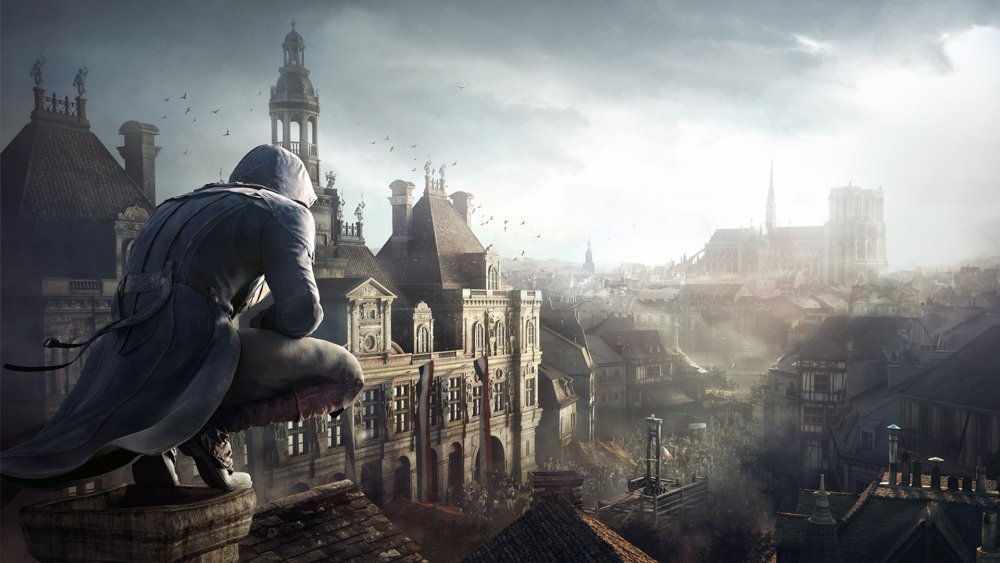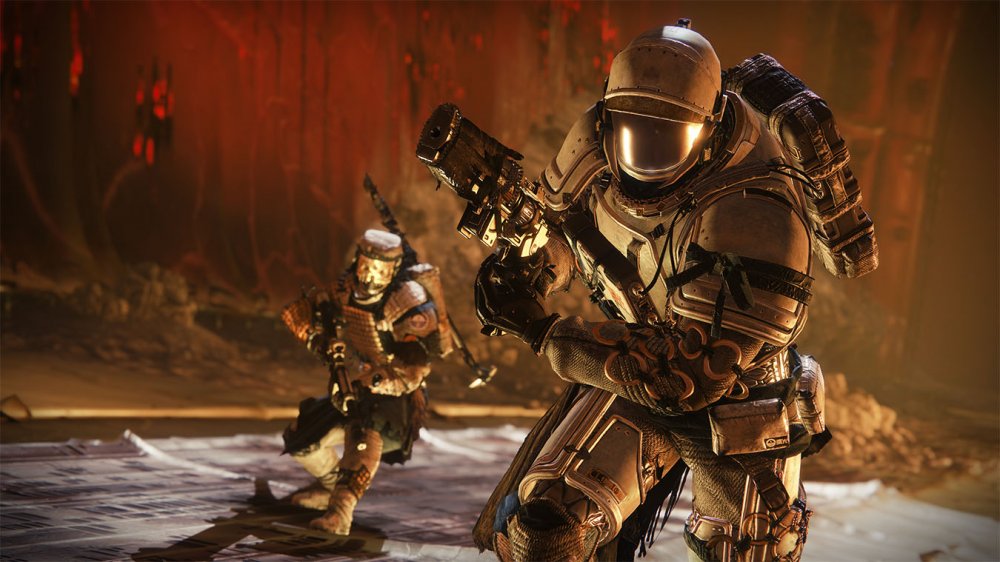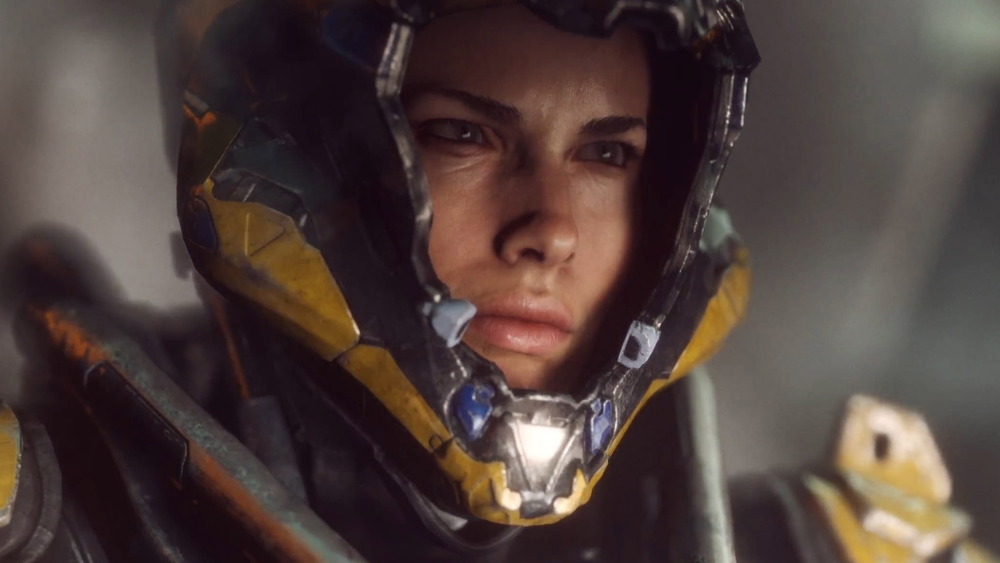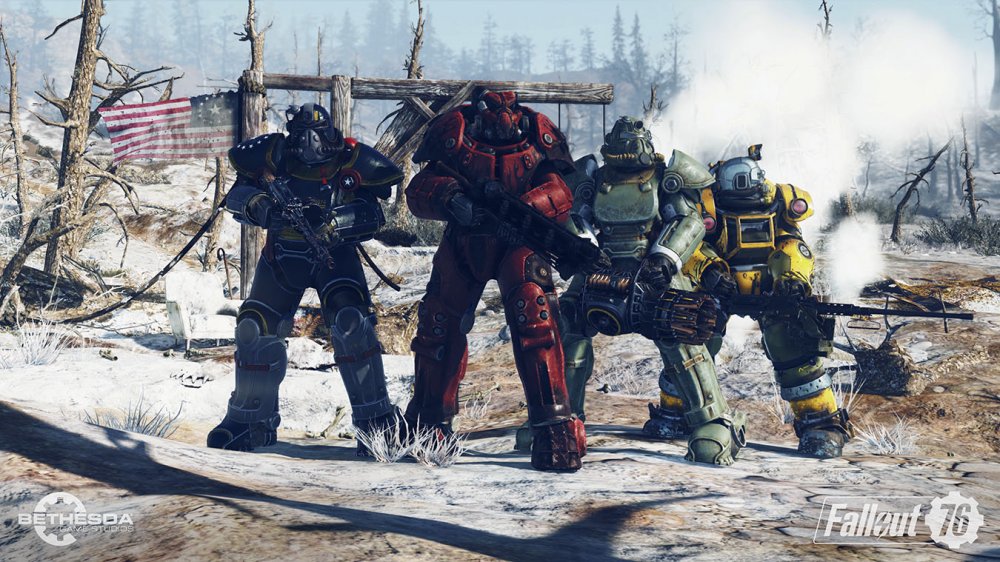Desperate Moves Games Made To Stay Relevant
It would be wonderful if every video game launched in fantastic shape, wouldn't it? Developers put in thousands of hours of hard work to make these experiences possible, and it would be nice if every single title released without a hitch and immediately found an audience. But that's not always the case. For every Breath of the Wild, there's a Metal Gear Survive. For every Forza Horizon 4, there's a The Crew 2.
Sometimes games come out, miss the mark, and fade into obscurity forever. Sometimes, though, developers and publishers recognize that desperate times call for desperate measures, and larger steps are taken to try and save a title from the scrapheap of history.
Here are the games that made big changes and took big risks to try and remain part of the conversation. Some managed to succeed. Some failed. But all — for better or worse — went big and either went on or went home.
Fortnite pivoted to battle royale
It might seem hard to believe, but there was once a time when Fortnite wasn't making money hand over fist. Back before Epic's popular shooter started pulling in millions of dollars a day — back when there was no battle royale or battle pass — it was a boring old survival title. You harvested materials during the day and built defensive structures. At night, you hoped those structures held as you worked to keep the monsters at bay.
When Fortnite first became available with that mode and that mode alone, not a whole lot of people were excited about it. It seemed Fortnite was destined to fade into obscurity rather quickly. But then something happened — the developers at Epic Games saw another title called PlayerUnknown's Battlegrounds doing rather well, and they mimicked its battle royale mode in Fortnite. The rest is history.
Fortnite, despite being late to the trend, quickly became the most popular battle royale title on the market. The building aspect of Epic's game added a different spin on the experience, and made it so shooting wasn't the only important feature; the ability to build quickly also played a huge role. Once the streamers started playing, Fortnite's audience multiplied exponentially. And, once Epic dug into its seasonal model and made every day worth logging in for, Fortnite took off and never looked back.
Evolve couldn't give itself away
You may not be entirely familiar with the name "Turtle Rock Studios," but oh boy, are you probably familiar with the company's work. Does Left 4 Dead ring a bell? Yes, Valve eventually took hold of that franchise and made its second installment in-house, but the first was all Turtle Rock. The massive popularity of Left 4 Dead is why so many were excited to see what Turtle Rock would do next, and why so many were high on Evolve becoming the next big thing in multiplayer gaming.
Unfortunately, Evolve was a massive dud, but not for lack of trying.
Evolve launched in February 2015, hoping to make the asymmetrical multiplayer genre a staple going forward. You might be shocked to learn that Evolve sold relatively well, moving 2.5 million units. The bad news came in the form of the game's player count; while millions bought it, few stuck around. So, Evolve quickly had to make a move to bring in more players.
The folks at 2K and Turtle Rock tried free-to-play in July 2016. It didn't work, however, leaving the fate of Evolve relatively uncertain until September 2018. At that point in time, Evolve shut down its servers, permanently killing off a title that 2K said would be part of a "permanent IP." Word about an Evolve 2 has yet to circulate, so the property may not be so permanent after all.
The Culling pulled a sequel
Most popular games get sequels — that's just a fact of the industry. Usually those sequels arrive while the original game is still popular, however. That wasn't the case with action battle royale title The Culling. Despite coming from a fairly unknown developer in Xaviant, The Culling was a widely played battle royale game that looked to be going places until the twin buzz saws of PlayerUnknown's Battlegrounds and Fortnite entered the picture.
After that, things got very bad for The Culling, and Xaviant needed to pull a rabbit out of its hat quickly. The answer? The Culling 2, which was somehow a far worse game than its predecessor, and barely had enough players to fill a lobby for a match. Xaviant hoped players of The Culling would come back to its sequel and fall in love all over again. Instead, the few still playing the original shunned the follow-up outright, forcing Xaviant to make another drastic move.
Xaviant tried to mend fences by pulling The Culling 2 from stores, stating it would make The Culling a free-to-play game. But the damage had already been done. The Culling's servers were eventually pulled offline in May 2019, and Xaviant didn't even bother to renew the game's domain name, signaling to all that this one is officially dead.
Project Spark never took off
Long before Media Molecule's Dreams hit the scene, those on the Xbox side had a game creation engine of their own. The Project Spark open beta launched for Windows in late 2013 before coming to Xbox One in 2014, and promised the world to those who would dive in and see what they were able to build with Microsoft's new tool. There was just one problem — the Xbox One had an atrocious launch, and anything debuting around the time the Xbox One came out didn't get much of a look as a result.
Microsoft really tried to make Project Spark work. The title was originally fueled by microtransactions, but Microsoft later pulled those out and gave creators all that content for free. Microsoft also added some Conker content to Project Spark, hoping to play on the nostalgia of those who enjoyed Rare's squirrel from the days of the Nintendo 64 and the original Xbox.
None of it was enough to make Project Spark stick, however. Once Microsoft realized the title was a lost cause, it shut down development on the future Conker content it had promised. Not only that, it also turned off online services for Project Spark, which meant creators could no longer share their games with others. Project Spark can still be used in a very limited capacity today, but it seems few are putting in the effort.
Perhaps you'll see something like it return when the Xbox Series X launches in Holiday 2020. Don't hold your breath, though.
The Elder Scrolls Online dropped the subscription
The Elder Scrolls is arguably Bethesda's most important franchise. It's certainly the one the company pushes the most, right? Take a look at how many systems you can play Skyrim on, for instance. It's on PlayStation 3, PlayStation 4, Xbox 360, Xbox One, Nintendo Switch, and PC. There's even a version adapted to work with Amazon's Alexa. With all that love, you'd assume anything with the Elder Scrolls name would be a slam dunk.
Not so fast, bucko. The Elder Scrolls Online would like a word with you.
The Elder Scrolls Online had a bunch of problems from the get-go. For starters, it was developed by ZeniMax Online Studios, and didn't quite have the feel of your typical Elder Scrolls title. Then the game launched at a full $60 price point, which didn't exactly get people in the door. Add that $60 retail price to the fact The Elder Scrolls Online also had a monthly subscription, and you can see where things might've started to go awry for Bethesda's MMORPG.
Fortunately, Bethesda knew a serious shakeup was needed. After some rough early days on the continent of Tamriel, The Elder Scrolls Online dropped the monthly subscription in favor of charging for later DLC. Over time, the base price for the title dropped, as well. This helped bring more players into the world of The Elder Scrolls Online, which is still very much alive and kicking to this day.
Final Fantasy 14 completely remade itself
You may think of Final Fantasy 14 as a fairly successful MMORPG, but that wasn't always the case. In fact, when the game first launched all the way back in 2010, it was a generally underwhelming experience. It wasn't until Naoki Yoshida took over production duties from Nobuaki Komoto and Hiromichi Tanaka that Final Fantasy 14 really began to come together.
Even then, Yoshida wasn't satisfied with all the things the multiplayer RPG was trying to do. So Yoshida did something that is still, to this day, considered quite insane: he asked Square Enix for permission to completely remake Final Fantasy 14. Square Enix said yes.
"I came to the conclusion that in order to create the ideal game system and base for managing the game in the future we would need to re-develop pretty much everything from the ground up," Yoshida said in an interview with VG247. That's exactly what happened. Over the course of a few years, the team at Square Enix basically rebuilt Final Fantasy 14 entirely, fixing and improving upon everything Yoshida felt didn't meet his standards. When the game was completed and released in 2013, A Realm Reborn was appended to the title to let everyone know: "Hey, this is a brand new game."
Not every subpar game has a producer willing to go that extra mile. Not every development studio has Square Enix cash backing it. Still, you have to take your hat off to Naoki Yoshida for having the guts to take on such a huge project. He felt Final Fantasy 14 would be better for it and, judging by the game's success, he was right.
Diablo 3 said no to auctions
Sometimes additions are made to video games with the best of intentions but actually wind up doing a lot more harm than good. Take the Auction House in Diablo 3, for example. Blizzard saw players using outside channels to trade and sell weapons and armor, and thought an in-game solution would be more beneficial. Was Blizzard going to skim some money off the top? Sure. But players would ultimately make out in the long run thanks to the Auction House.
Not so much, as Blizzard learned. It seems the studio forgot why players grind and grind for gear in the first place: it's almost as much about the sense of accomplishment as it is the look.
Players did not appreciate seeing gear being sold off to the highest bidder, as they felt it disrespected the time they put in to earn items legitimately. As a result, Blizzard caught a whole lot of heat for the Auction House and the way it trivialized the loot game. This could have been a make or break moment for Diablo 3, as there were other issues players weren't exactly thrilled with, as well. But Blizzard heard fans loud and clear, and decided to remove the Auction House from the game entirely.
Halo: The Master Chief Collection gave an entire game away
To say Halo: The Master Chief Collection was broken at launch is grossly understating things. The bundle of Halo titles — which was meant to join every single mainline game together, multiplayer included — had a whole host of server issues when it arrived. Players couldn't get into matches. The bouts that did start up were unreliable at best. The Master Chief Collection was supposed to begin the Xbox One's redemption arc; instead, it made many believe the console couldn't be saved.
The developers at 343 Industries, who took the Halo reins from Bungie, decided to take drastic measures to apologize and keep buyers of The Master Chief Collection on board. Halo 3: ODST — a game that doesn't even star Master Chief — was added for free for early adopters as a way to make amends. And 343 got to work on dramatic improvements to Halo: MCC that are still in progress to this day.
There's a good chance you might not have Halo: The Master Chief Collection on PC had 343 not bungled the game's initial launch. That set the studio on a path toward making the package as amazing as possible, with new builds and features flying in on a regular basis. Even though some early buyers were mad at launch, it's possible all of this worked out for the best in the end.
Assassin's Creed: Unity used freebies as apologies
Ubisoft isn't known for putting out low-quality games, but, wow, did Assassin's Creed: Unity ever leave a stain on the company's record. The title wasn't all that well-received at launch, but the PC version especially got slapped around for a myriad of technical problems. Texture glitches in the PC release made faces look like they were ripped straight out of nightmares rather than the era of the French Revolution. And the game performed like a last-gen title in some places. It was not a good showing.
The folks at Ubisoft took the criticism to heart, however, which is not something you can say of a lot of companies. The CEO of Ubisoft Montreal, Yannis Mallat, even weighed in to say "the game was diminished by bugs and unexpected technical issues." Ubisoft had to do right by its fans, and so it came up with a solution.
Those who purchased Assassin's Creed: Unity would automatically get the game's first DLC for free. Anyone who purchased the Season Pass also received a free Ubisoft game from the following list: Assassin's Creed 4: Black Flag; The Crew; Far Cry 4; Just Dance 2015; Rayman Legends; and Watch Dogs. These freebies came with the hope that Ubisoft would take its time with the Assassin's Creed franchise going forward, and fortunately, the company did just that. After Syndicate came out the following year, Ubisoft took a year off before coming back with Origins and Odyssey — arguably two of the best games in the series.
Destiny 2 changed its content model
Once upon a time, the content drops in Destiny 2 weren't as easy to understand or obtain. You had to purchase the base game — which is expected — but from there, things got a little wonky. The next year's expansion would require you to buy the previous year's season pass, and sometimes, Bungie didn't bundle it all together into one helpful package. Needless to say, a lot of players didn't come along for the ride, as catching up was prohibitively expensive.
That all changed when Bungie separated from longtime Destiny publisher Activision. The studio knew it wanted to switch up the way it handled DLC, and knew that a change could potentially help more players stay with the game. When the Shadowkeep expansion arrived in October 2019, that change finally came.
From Shadowkeep forward, Bungie stated players would only be required to buy expansions in order to stay up to date. The seasonal content drops — which come four times per year — would not be required at all, but would only cost $10 each if players did want to join the fun. That means players who own Shadowkeep but don't play again until June 2020, for example, can just purchase the season they come back into. That's a whole lot easier to comprehend, and thus far, it seems the model has been working very, very well.
Anthem tried for a comeback but got the hook
Anthem was a heavily hyped game from a studio known for hits. BioWare had previously put itself on the map with Knights of the Old Republic. It followed that by debuting the Mass Effect and Dragon Age franchises. Gamers had high hopes the studio could deliver on a live-service action shooter, but Anthem fell short, with The Guardian calling it "a tedious and conservative dirge." Still, BioWare got something many studios don't: a second chance to get the game right.
It didn't work.
Despite rolling Anthem back into the garage for a complete overhaul, it seemed the game could not be salvaged. "In the spirit of transparency and closure we wanted to share that we've made the difficult decision to stop our new development work on Anthem," the studio wrote in late February 2020. Just like that, any hopes of Anthem making a comeback were squashed like so many of its bugs weren't at launch. At least some good came out of it: Anthem's failure convinced EA that it shouldn't go the live service route with the next Dragon Age.
Fallout 76 is bringing back the NPCs
Bethesda already gave one of its key franchises an MMO with The Elder Scrolls Online. It only made sense, then, that Fallout would get an always-connected world of its own. That materialized in 2018's Fallout 76, which Bethesda hoped would win hearts just as Fallout 3 and Fallout 4 before it. Shortly after the game's launch, however, people realized Fallout 76 was missing more of the Fallout experience than they were probably comfortable with.
One of the biggest issues gamers had with Fallout 76 was its lack of human NPCs. Once a staple of the Fallout franchise, these non-playable characters had essentially been traded out for robots, which made Fallout 76 a lot less exciting. The good news is, Bethesda recognized this grave mistake and promised an update called Wastelanders would bring the humans back. The question is, will anyone care?
Fallout 76 is widely considered to be a bomb at this point, with a small (but still devoted) playerbase. If the game can hold on until Wastelanders arrives on April 14, 2020, it's possible a comeback story could play out. It's also possible, though, that Wastelanders could fail to live up to the hype, just as much as Fallout 76 has. If that happens, it would put the future of Bethesda's MMO into serious jeopardy.
You'll have to wait and see.

